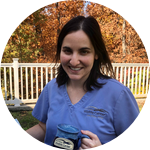About This Project
Distal limb infections are a common problem in birds in wildlife rehabilitation settings. Such infections can be challenging to treat and may result in prolonged stays in rehabilitation facilities or euthanasia. This study will assess whether intravenous regional limb perfusion is a safe and efficacious adjunctive treatment to improve outcomes for birds presenting for rehabilitation in Southwest Florida.
Ask the Scientists
Join The DiscussionWhat is the context of this research?
Antibiotic and anti-inflammatory regional limb perfusion (RLP) is commonly used to treat human and equine distal limb infections. RLP creates high concentrations of medication at the affected site for effective elimination of infection and allows for less frequent treatments, which is advantageous in stress-prone wildlife. Use of RLP has been reported in cranes, pelicans, and chickens, but no prospective studies assessing its use in wildlife exist to date. Additionally, several drugs commonly used for RLP are potentially nephrotoxic, and while no adverse effects have been reported, markers of renal function were not monitored in existing reports. This study will improve our understanding of the safety and efficacy of RLP for use in treating avian distal limb infections.
What is the significance of this project?
Bird populations have experienced significant losses in the past 50 years, dropping by 29% across North America, and seabird populations in particular have declined by 69% globally. Entanglement in fishing gear is a major causes of injury and death in seabirds, accounting for over 50% of seabird admissions to wildlife rehabilitation centers in some regions. Soft tissue infections and osteomyelitis are complications of entanglement wounds that can contribute significantly to morbidity and mortality. Furthermore, many seabird species are prone to developing pododermatitis in rehabilitation which, while not immediately life-threatening, can prevent release and lead to euthanasia. Application of RLP in these cases may lead to faster recovery and improved survival and release rates.
What are the goals of the project?
The goals of this project are threefold: to test if changes in markers of renal function are seen following RLP treatment, develop a sensitivity profile for bacteria involved in infections and document efficacy with culture and sensitivity testing, and assess the impact of RLP on survival and release rates. Blood for chemistry profiles and appropriate samples for culture and sensitivity will be collected pre- and post-RLP treatment, and patient outcome parameters including survival rates, release rates, and duration of hospitalization will be recorded. The study population will include birds presenting to CROW clinic with pododermatitis, osteomyelitis, or other distal limb infections; birds with similar lesions not treated with RLP will serve as controls.
Budget
The majority of this budget will be allocated towards the costs of culture and sensitivity testing and serum chemistry analysis. Additionally, these funds would help cover the costs of supplies needed for venipuncture to collect blood samples, catheters and other supplies to perform regional limb perfusion treatments, and data analysis.
After successful project completion, we hope to publish our results in a peer reviewed journal and present our findings to the avian health community.
Endorsed by
 Project Timeline
Project Timeline
Sample collection will begin in summer and fall of 2022, as cases present to the Clinic for Rehabilitation of Wildlife (CROW). Data will be analyzed in spring 2023, with a plan to submit our findings for publication in summer 2023.
Jun 01, 2022
Project Launched
Aug 01, 2022
Begin sample collection
Aug 01, 2022
Project launch
Mar 01, 2023
Data Analysis
Jun 30, 2023
Submit for publication
Meet the Team
Team Bio
The Clinic for the Rehabilitation of Wildlife (CROW) has a unique team of wildlife health professionals with decades of collective experience in avian medicine. The team is led by Dr. Heather Wilson Barron, DVM, DABVP-avian, and is supported by CROW staff vet Dr. Robin Bast, 2 veterinary interns, 3 Certified Veterinary Technicians, and 4 Certified Wildlife Rehabilitators.
Kristen Schott
As an undergraduate at Princeton University researching toxoplasmosis in sea otters for my senior thesis, I developed a fascination for the many complex factors that influence the health of wildlife populations and the transmission of infectious diseases between them. Following graduation, I attended veterinary school at Cornell University with the ultimate goal of pursuing a career combining clinical veterinary work with zoo and wildlife species with conservation medicine research. After two years of intensive clinical training in small animal and companion exotic pet medicine, I am very excited to be starting a 1-year wildlife veterinary specialty internship at the Clinic for Rehabilitation of Wildlife (CROW) and to be collaborating on this project with their amazing team.
Heather Wilson Barron
Dr. Barron became CROW's Hospital Director/Head Veterinarian in late 2011. She received residency training in zoologic and wild animal medicine and was later faculty at the University of Georgia, College of Veterinary Medicine. She obtained further international experience as Professor and Department Head of Clinical Medicine at St. Matthew’s University, School of Veterinary Medicine in the Cayman Islands, where she was also the veterinarian for the Cayman Turtle Farm and Cayman Wildlife Rescue. She has published widely in her field, with numerous journal articles, textbooks, and educational proceedings to her credit, including her most recent book, “Medical Management of Wildlife Species”, published by Wiley Blackwell. She is a Certified Aquatic Animal Veterinarian, a board-certified avian specialist, and a licensed wildlife and sea turtle rehabilitator with over 25 years of experience in practicing and teaching special species medicine.
Project Backers
- 18Backers
- 145%Funded
- $3,205Total Donations
- $161.39Average Donation



